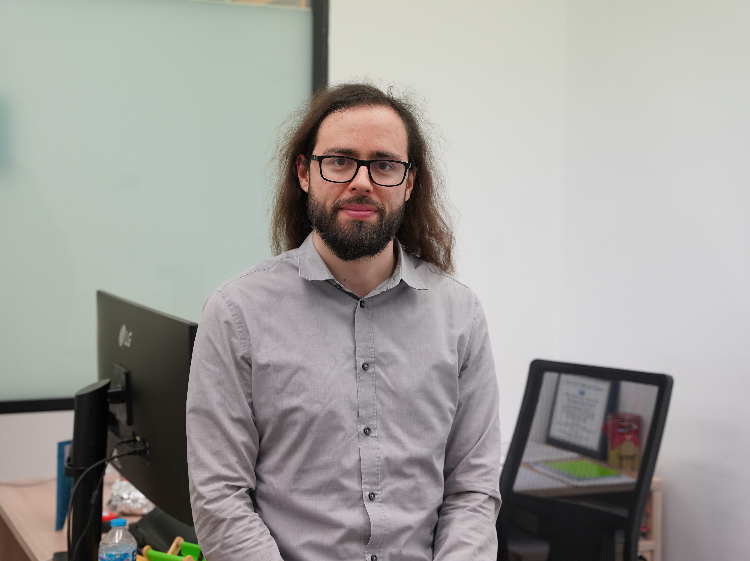
The optical scanner proposed by Tordera is not only large in size, but can also be easily integrated into commercial products, using organic materials. According to the researcher himself, it shows excellent performance and a resolution suitable for practical applications in the field of biometric detection, both with fingerprints and vein patterns.
Another strength of the device is that all processing is compatible with current industrial manufacturing methods. With the proposed system, scanners can be manufactured very cost-effectively in very large sizes. Moreover, its ultra-thin thickness allows for seamless integration into stand-alone devices.
Daniel Tordera (Valencia, 1986) graduated in Chemical Sciences at the Universitat de València in 2009, with the Extraordinary Prize of his promotion and the Suschem Prize for Young Chemical Researchers of the Spanish Royal Society of Chemistry. He also graduated as a Materials Engineer from the European School of Chemistry, Polymers and Materials (France) and completed a Master's degree in Materials Science at the University of Strasbourg (France).
Entrepreneur
Tordera received his PhD in Nanotechnology from the University of Valencia with the Extraordinary Prize and the Nanomatmol Prize for the best PhD in Spain from the Spanish Royal Society of Chemistry. He has also shown his entrepreneurial skills by founding his own company, Lec-Val Lighting, to commercialise the results of his PhD. The firm has focused on light-emitting electrochemical cells, a type of ionic organic materials for light-emitting devices. Lec-Val Lighting was selected as an innovative idea by the Repsol Entrepreneurs Fund.
He then completed a postdoc at Linköping University (Sweden), where he studied optical materials for energy and sensor applications, and where he developed technologies such as a plasmonic thermistor, plasmon-based displays and photoconductive paper. In 2017, he accepted a position as Senior Research Fellow at Holst Centre (TNO), where he led the development of organic infrared photodector technology, taking charge of an interdisciplinary team of engineers and working on projects for international technology companies.
Since the end of 2020, Daniel Tordera has been assistant professor at the Department of Physical Chemistry and researcher at ICMol, where he combines teaching duties in the faculties of Chemistry and Pharmacy with his work on photodetectors and light-emitting devices based on perovskites and organic materials as part of the Molecular Optoelectronic Devices Team (MOED) led by Professor Henk Bolink.
The Ciutat d'Algemesí prize, endowed with 5,000 euros, aims to encourage the research spirit of young scientists. The award ceremony will be held this Friday, 24th March, in the plenary hall of the Algemesí Town Hall. Two other ICMol researchers, Isabel Abánades Lázaro and Laura Francés Soriano, have received two runners-up prizes of 500 euros each.

